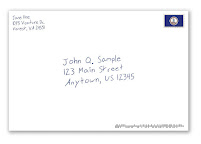Cassi tells you how to get started researching heirs property below. -- Grace Cordial
Whether you have already obtained legal counsel or are preparing for that, developing an accurate family tree to determine heirs is a typical and crucial part of clearing title.
Who can be an heir? If an individual dies without a will (legal term "intestate"), the state in which s/he died will designate certain people as legally entitled to the deceased’s property as “heirs”.
South Carolina law states that heirs can be a spouse and biological or legally adopted children. If there is no spouse or children, the parents of the deceased can inherit. If the parents of the individual are deceased, the siblings can be heirs.
Please note: Other states may have different rules. The state where the property is located determines who and how the property is passed down to spouses, brothers and sisters, parents, aunts and uncles, children, grandchildren, nieces and nephews, cousins, etc.
The Process
TIP: You may be dealing with a lot of people, living and dead, during your research. Be sure to keep accurate records and consider how you are going to keep the records organized for easy access during and after the research period is completed.
Begin with the individual(s) who owned the property on the last recorded deed.
Record how you are related to them and their date of death.
Next, answer these questions:
- Who was this person’s spouse?
- Who were their children (biological or legally adopted)?
- If there were no spouses or children, who were the parents or siblings?
- Record the date of death for each of these individuals, then repeat the process down the line until reaching yourself and any other living heirs.
What if you can’t find these sources of information? The library might be able to help by sharing some of our materials with you - inside the BDC Research Room or via our databases! For example:
Beaufort County Library subscribes to the Ancestry Library Edition database. ALE includes Census Records (Up to 1940; 1950 releases 1 April 2022); Death Certificates; Coroner’s Records; Social Security Death Index and Marriage Certificates. Although ALE is big and includes more than 10,000 databases consisting of millions of records, it does not have digital images of every government record ever created. Sometimes one has to go to the courthouse or State Archives to get a relevant record. Sometimes the record you need does not exist or was created but destroyed by fire, flood, war, etc.
Within the Beaufort District Collection, we provide a local obituary index, have some Beaufort County Coroner's Inquisition Records on microfilm, and can provide more hands-on help using Ancestry Library Edition than you are likely to get in the Branch Libraries. Just be sure to make an appointment with us ahead of time to get the one-on-one assistance. Send an email to bdc@bcgov.net; or call 843-255-6468 during regular business hours.
- Birth dates are typically unnecessary in this process.
- Exact dates of death are required.
- Include people that you did not directly descend from. This means aunts, uncles, cousins, etc. as they and their heirs may have claims to the same property that you do.
- Work your way up to the present starting with your ancestor on the deed. From that great-great-great... Grandmother/father, find their kids, then grandkids, then great-grandkids, etc. Don’t skip a single person! Each of the survivors may have a claim to the heirs property.
 Our goal in the BDC is to provide customers with library resources and some general guidance on how to do the work necessary to help establish, dispute, verify or clear a claim on heirs property. We show and tell you how to do the work with library resources - but we do not, I repeat, BDC staff does not - research heirs or perform genealogical research on behalf of others. We are not attorneys and do not have licenses to give legal advice. With those caveats, if you would like some one-to-one assistance using Ancestry Library Edition, we will set up an appointment date and time for you to learn the basics with us. Contact us at least a few days in advance to make the necessary arrangements: 843-255-6468 or bdc@bcgov.net.
Our goal in the BDC is to provide customers with library resources and some general guidance on how to do the work necessary to help establish, dispute, verify or clear a claim on heirs property. We show and tell you how to do the work with library resources - but we do not, I repeat, BDC staff does not - research heirs or perform genealogical research on behalf of others. We are not attorneys and do not have licenses to give legal advice. With those caveats, if you would like some one-to-one assistance using Ancestry Library Edition, we will set up an appointment date and time for you to learn the basics with us. Contact us at least a few days in advance to make the necessary arrangements: 843-255-6468 or bdc@bcgov.net. Center for Heirs' Property Preservation1535 Sam Rittenberg Boulevard, Ste. D.Charleston, SC 29407843-745-7054; Toll-Free 1-866-657-2676
Please contact them for additional information regarding the process and the legal side of the matter. - Grace Cordial




No comments:
Post a Comment